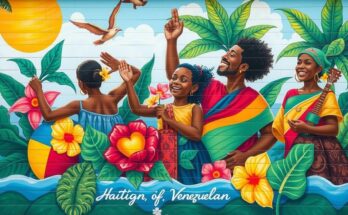The article discusses the rise of Christian intellectuals in Chile amid increasing secularization. While religious identification among younger individuals has diminished significantly, the influence of these intellectuals has expanded in the cultural and political arenas. They engage in dialogue across various platforms, focusing on societal issues and fostering inclusivity in discourse despite political affiliations.
The secular landscape in Chile has undergone a significant transformation, with a notable decline in religious identification among the younger population. In 2012, 64% of individuals under 35 indicated an affinity for a religion, whereas by 2022, 63.6% identified as non-religious. Notably, the cultural arena has seen a surge in the influence of Christian intellectuals over the past fifteen years.
This new generation of Christian intellectuals is primarily in their forties or younger and actively participates across various media platforms including traditional print, digital, and radio. They engage extensively in public discourse through interviews, written works, seminars, and academic endeavors, allowing their perspectives to resonate widely in Chilean society.
These thinkers have emerged as significant contributors to political discourse, benefiting from their upbringing in a transitional Chile, which allows them to navigate discussions without the biases rooted in the country’s dictatorial past. Their inclusive approach fosters dialogue with diverse audiences, including those who identify with the new left, reflecting a commitment to engaging with varied ideological perspectives.
Unlike their predecessors, these intellectuals prioritize dialogue over polarized debate. They emphasize political contexts, instead of solely moral or economic arguments. For instance, discussions surrounding abortion often center on the societal implications rather than solely tribal ideologies, advocating for a more community-oriented discourse on pressing topics affecting Chileans.
Their intellectual foundations are rich and varied, with influences spanning numerous traditions. Notable figures such as Tocqueville are common among them, alongside others like Aron, Arendt, and Foucault. Chilean historians like Gonzalo Vial have significantly shaped their views, emphasizing the broader political realities over mere economic interpretations, while sociologist Pedro Morandé has inspired their appreciation for oral culture and Latin American ethos.
Prominent Christian intellectuals include Daniel Mansuy, a respected professor and political columnist, whose recent work on Salvador Allende has garnered broad acclaim and solidified his standing in national discourse. Similarly, Josefina Araoss, a young historian, has positively influenced the understanding of populism through her critical analyses. Other intellectuals like Manfred Svensson, Matías Petersen, and Gabriela Caviedes contribute substantially through extensive research within their respective domains.
Various think tanks, such as the Institute of Society Studies, have emerged, emphasizing scholarly research and fostering public discussion on contemporary issues. Additionally, youth-driven organizations such as IdeaCountry proactively cultivate public service vocations among university students, while Res Publica aims to educate young people nationwide through its diverse initiatives.
The endeavors of Christian intellectuals highlight the vital role of public discourse in Chile, particularly as they bridge academic research and media engagement. Their approach demonstrates the feasibility of simultaneously undertaking various roles within the public sphere, enhancing Chile’s intellectual landscape and fostering a constructive dialogue on societal issues.
In summary, the emergence of Christian intellectuals in Chile signifies a profound shift in cultural and political discourse amidst a backdrop of secularization. Their engagement transcends traditional partisan divides, fostering inclusive dialogue across various issues affecting society today. By maintaining a community-oriented focus and leveraging diverse intellectual influences, these thinkers contribute significantly to the national conversation, ultimately enriching Chile’s public intellectual landscape.
Original Source: www.omnesmag.com




